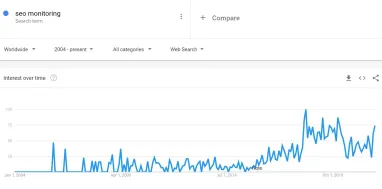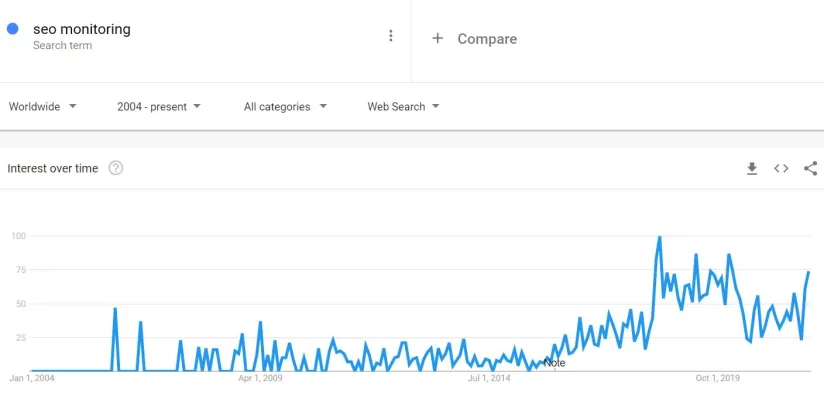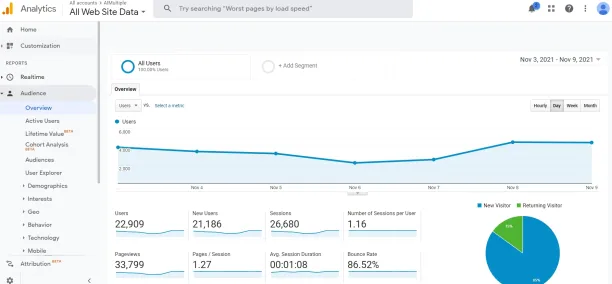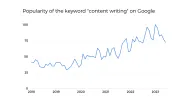In-Depth Guide to SEO Monitoring: Metrics & Tools in 2024


Businesses’ interest in increasing online exposure to their brands has driven growth in the SEO industry, and 61% of marketers say growing organic presence and improving SEO are their top inbound marketing priorities. In turn, SEO monitoring has been gaining popularity as businesses aim to identify the changing interests of customers and optimize their SEO strategies accordingly using AI algorithms, web crawlers, and web analytics monitoring tools.
What is SEO monitoring?
SEO monitoring is the practice of monitoring the success of business SEO strategies and the ranking of their content on Google Search in order to:
- Analyze content performance
- Analyze position compared to competition
- Identify areas for improvement
How does SEO monitoring works?
SEO monitoring tools enable users to check significant SEO metrics, including:
- Audience engagement:
- Changes in traffic flow (views, clicks, bounce rate, etc.)
- Changes in audience type (vendors or customers)
- Changes in audience location
- Seasonality of search trends
- Content performance:
- Visibility / rank on Google Search engine
- Titles and meta description (i.e. the HTML element that summarizes the content)
- Keyword rankings
- Deadlinks (i.e. web pages that are currently unavailable)
- Crawlability (i.e. search engine’s ability to access and crawl the site content without running into a broken link or dead end)
Observing these metrics enables businesses to optimize their content to attract more views and optimize customer conversion rates.
What are SEO monitoring tools?
There are numerous tools to monitor SEO success and failure which defer according to business requirements of monitoring. For instance:
Content analysis tools
Content analysis tools enable users to analyze content performance metrics, understand which keywords or URLs perform better, and automate reports about products, sales, and customer shopping behavior. Such tools include:
- Google Analytics
- Google Search Console
- SEMrush
- Moz

For a comprehensive list, you can check our data-driven list of SEO software.
Deadlink checkers
Deadlink checkers are tools that automate the monitoring of deadlinks in a business website, alert users of issues in links and report the results in a real-time manner. Some of these tools are:
- Deadlink Checker
- Ahrefs
- Broken Link checker
Web crawlers
Data collectors and web crawlers / scrapers enable businesses to collect competitors’ online data (e.g. keywords, descriptions, URLs, customer reviews, etc.) in order to optimize their content according to market trends and consumer behavior. Content developers also use web scrapers to scrape their own websites in order to check for SEO issues (e.g. slow load times, deadlinks) and recommend improvements.
Competitor analysis tools
Competitor SEO analysis tools enable businesses to identify the competitor websites’ traffic, search rankings, keyword rankings, backlinks, and social media metrics. Leveraging competitor data enables businesses to optimize their content and attract more customers. Some of these tools include:
- Alexa
- SE Ranking
- SpyFu
- iSpionage
For better SEO implementation, businesses can leverage AI algorithms for keyword search, content generation, running tests and measuring results, personalization, prioritization with analytics, and voice search optimization. Feel free to read in detail in our in-depth article on AI in SEO.
And if you believe your business will benefit from SEO monitoring or management tools and services, feel free to check our data-driven lists of:
And we can guide you in choosing the right solution for your business:

Cem has been the principal analyst at AIMultiple since 2017. AIMultiple informs hundreds of thousands of businesses (as per similarWeb) including 60% of Fortune 500 every month.
Cem's work has been cited by leading global publications including Business Insider, Forbes, Washington Post, global firms like Deloitte, HPE, NGOs like World Economic Forum and supranational organizations like European Commission. You can see more reputable companies and media that referenced AIMultiple.
Throughout his career, Cem served as a tech consultant, tech buyer and tech entrepreneur. He advised businesses on their enterprise software, automation, cloud, AI / ML and other technology related decisions at McKinsey & Company and Altman Solon for more than a decade. He also published a McKinsey report on digitalization.
He led technology strategy and procurement of a telco while reporting to the CEO. He has also led commercial growth of deep tech company Hypatos that reached a 7 digit annual recurring revenue and a 9 digit valuation from 0 within 2 years. Cem's work in Hypatos was covered by leading technology publications like TechCrunch and Business Insider.
Cem regularly speaks at international technology conferences. He graduated from Bogazici University as a computer engineer and holds an MBA from Columbia Business School.
To stay up-to-date on B2B tech & accelerate your enterprise:
Follow on
Comments
Your email address will not be published. All fields are required.